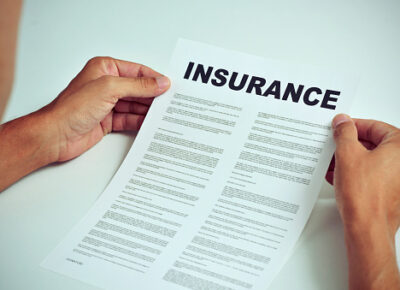New Jersey drivers should know what their medical expense benefits are before they are involved in an automobile accident, because by then it is too late. Our firm and this author have represented hundreds of clients who were injured in car accidents. Unfortunately for the majority of our clients, the only time they viewed their automobile insurance policy was after the accident, while in this office. When reviewing the insurance policy together, most clients are surprised to discover what their policies will and will not cover.
This article is dedicated to informing New Jersey drivers that being proactive with their automobile insurance policy will help drivers plan and prepare for the unexpected. In staying proactive, consumers must understand their “Medical Expense Benefits Limits,” which fall under Personal Injury Protection Benefits (“PIP benefits”).
Medical Expense Benefits Limits, in everyday terms, refers to the payment of medical bills, including surgical, rehabilitative and diagnostic services and hospital expenses, for the medical treatment of injuries sustained in an automobile accident. For the statutorily defined definition of “medical expenses” see N.J.S.A. 39:6A-2(e).
A client needs to be aware of his/her medical expense benefits limits because as a consumer you want to ensure that you have adequate coverage to pay the medical bills no matter how severe the injuries are.
The following is a brief synopsis of medical expense benefits limits found in typical automobile insurance policy:
Under a Standard policy of insurance, medical expenses up to a $250,000.00 limit will be paid by your automobile insurance carrier for medical treatment (reasonable, necessary and appropriate medical treatment) that is rendered in connection with injuries sustained in a car accident. N.J.S.A. 39:6A-4(a). Limits under N.J.S.A. 39:6A-4(a) can also be lowered to $15,000, $50,000, $75,000 or $150,000. By reducing you limits, you save money, but you expose yourself to payment for medical expenses should those medical expenses exceed your chosen policy limits. If you exceed those policy limits and have health insurance, the medical bills, over and above those limits, can be submitted to health insurance.
Under a Basic policy of insurance medical expense benefits are limited to $15,000.00 per person, per accident. An exception exists for additional medical expense benefits up to $250,000.00 for (1) all medically necessary treatment of permanent or significant brain injury, spinal cord injury or disfigurement or (2) for medically necessary treatment of other permanent or significant injuries rendered at a trauma center or acute care hospital immediately following the accident. N.J.S.A. 39:6A-3.1. Choosing a basic policy may save you some money on your premiums, but it can expose you to payment for medical expenses above the $15,000.00 limit, unless the injury was a category 1 or 2 injury. Additionally, if you have health insurance, the medical bills not covered under a basic policy of insurance can be submitted to health insurance for payment.
Under a Special policy of insurance medical expense benefits are limited to an amount not to exceed $250,000.00 for “emergency care.” Emergency care refers to all medically necessary treatment of a traumatic injury or a medical condition. Such emergency care shall include all medically necessary care immediately following an automobile accident. Emergency care extends during the period of initial hospitalization until the patient is discharged for acute care by the attending physician. Emergency care shall be presumed when medical care is initiated at a hospital within 120 hours of the accident. Emergency PIP coverage shall also include all medically necessary treatment of permanent or significant brain injury, spinal cord injury or disfigurement after the patient is discharged from acute care. N.J.S.A. 39:6(A)-3.3. This is the cheapest possible insurance coverage available. Emergency care is covered; non-emergency care is not. Choosing a special policy may save you more money on your premiums, but it can expose you to payment of all non-emergency medical expenses, if you have no health insurance.
An insured may also select their own health insurance coverage as primary coverage for medical expense benefits. In that case, the automobile insurance carrier providing medical expense benefits under PIP coverage would make payments on reasonable medical expenses not covered by health insurance or benefits up to the limit of the medical expense benefit coverage.
In this author’s opinion, I normally recommend that clients carry the standard policy of insurance with medical expenses up to the $250,000.00 limit pursuant to N.J.S.A. 39:6A-4(a), because it ensures a significant amount of coverage in the event of an injury. There are no guarantees that a person will not be in a car accident, but if you are, you want to make sure that there is enough coverage to pay the bills no matter how severe the injuries sustained. If you are wealthy, you may choose a higher limit.
All New Jersey drivers are encouraged to review their automobile insurance policies with their attorney to ensure their medical expense benefits limits are adequate and acceptable to their financial and personal wishes.
This advice is general in nature and everyone has their own special circumstances in life. So be prudent, careful and responsible to protect yourself. If you have a question, please contact your attorney. Don’t Have an attorney? Contact us today to find the right one for you.

